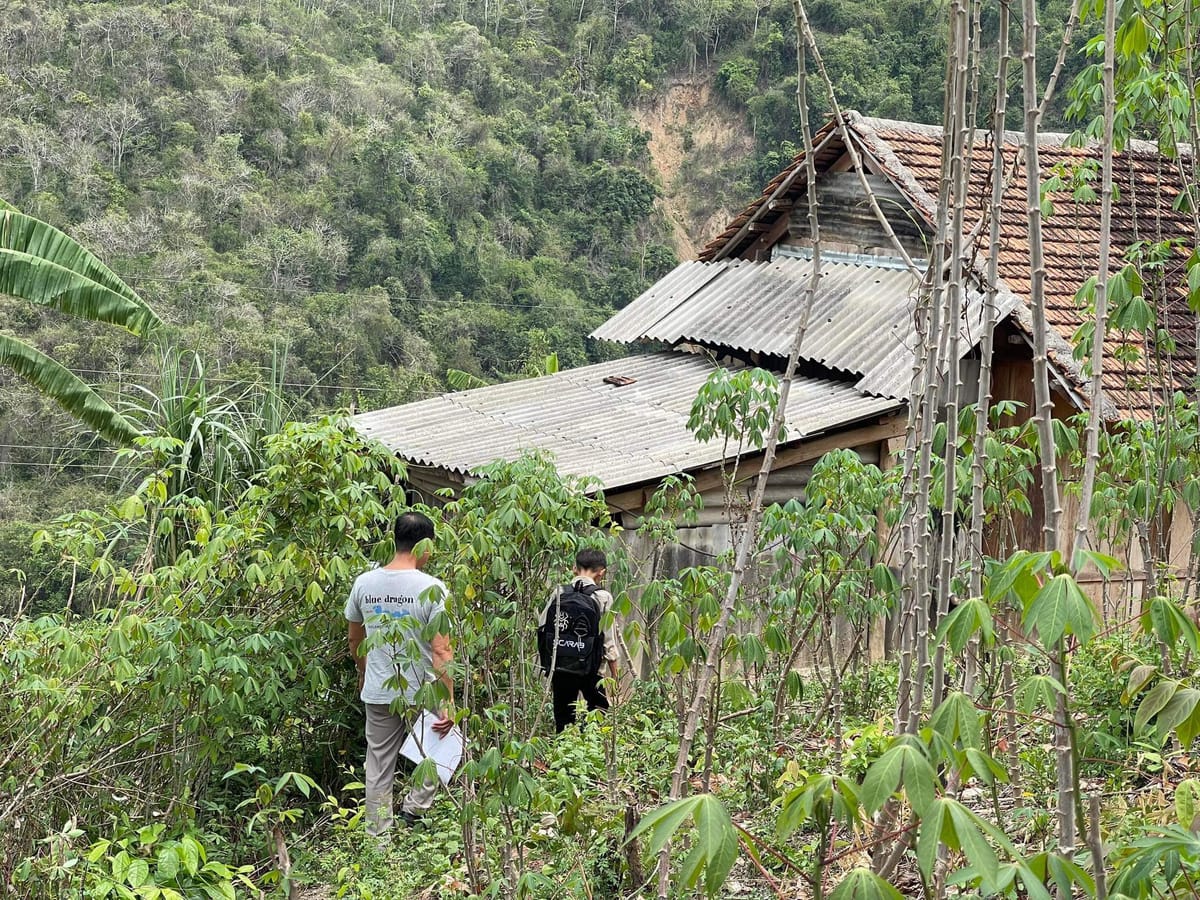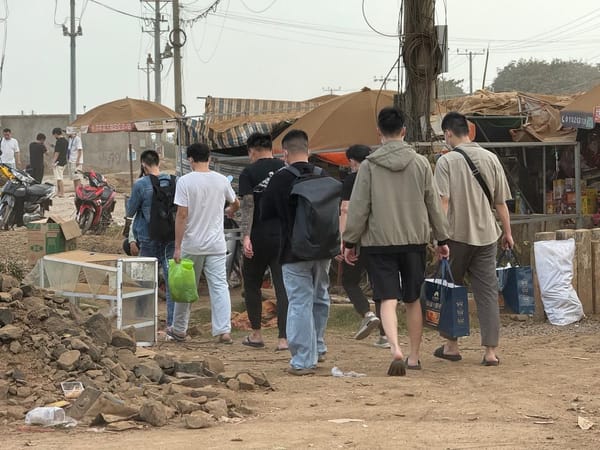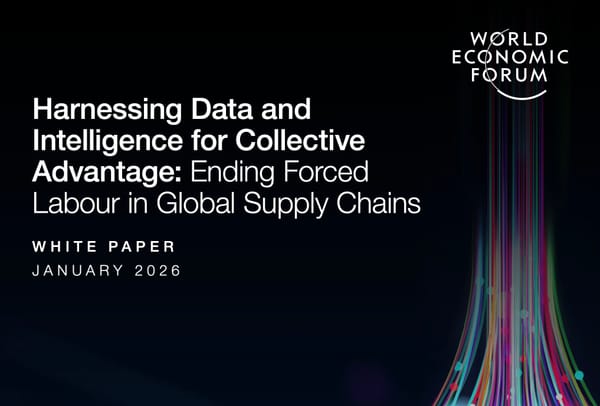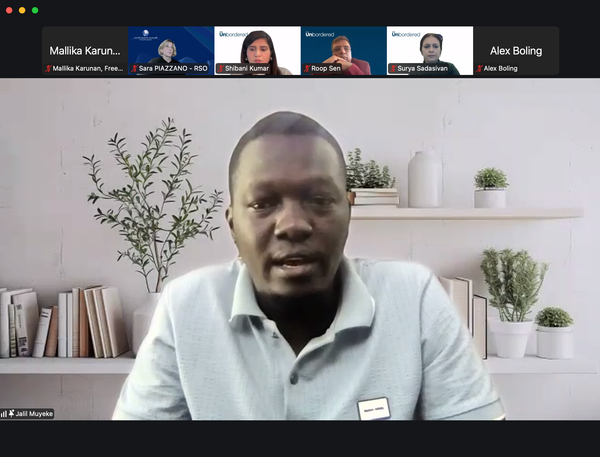Trafficking misinformation should be countered by evidence-based approaches

Public misconceptions around human trafficking are detrimental to the overall response, Bangladesh publishes its first national TIP study, and Cambodia audits a labour rights organization which published a report on garment factories.
Misinformation and false assumptions about human trafficking often lead to misguided judgments on why and how trafficking happens, potentially resulting in victim-blaming, a decrease in public support, and fewer donations to anti-trafficking charities, according to organizations working on the ground. Furthermore, shifts in the public mood could adversely affect the way in which governments respond to trafficking issues.
Judgments made in the public domain, for instance on social media, are often based on misconceptions rather than fact and, when repeated and shared by others, can gain traction in the public consciousness, practitioners say. This phenomenon highlights the need for the dissemination of accurate information and greater efforts to promote a deeper understanding of the complex issues surrounding human trafficking.
Blue Dragon Children’s Foundation, a Hanoi-based non-governmental organization that provides both responsive and preventative anti-trafficking services to help children and families, describes some comments on its social media posts as “surprising”. When it rescues someone from an exploitative situation, Blue Dragon says, it announces the operation online as soon as it is safe to do so, as a way of sharing information with its supporters and demonstrating the direct impact of their donations. Yet a recent post announcing the rescue of a young woman from a forced marriage and the planned reunion with her family attracted a significant number of comments asking why the group would bring her back to the very people who had trafficked her in the first place. In reality, her family were not involved, had spent years searching for their daughter, and were ecstatic at her safe return.
While in very rare cases a child is sold by their parents or siblings, only 3 per cent of trafficking cases in Vietnam involve a close family member, says Blue Dragon, while a further 3 per cent involve a more distant relative such as an aunt or uncle; this means that 94 per cent of known cases are not connected to family members at all, yet public perception often focuses on the 6 per cent in which relatives are involved.
This trend aligns with the broader issue of misinformation and misunderstanding around human trafficking, reflected in simplified media narratives which are often criticized by survivors for perpetuating stereotypes and falsehoods, misrepresenting victims, and profiting from victims’ stories without centering their voices. Such narratives result in a range of negative impacts, for instance, when misinformation leads to blame being unfairly placed on victims or their families, it can prevent survivors from seeking help. It can also lead to misguided policy decisions and the ineffective use and allocation of resources, while the root causes of trafficking go unaddressed.
Discussing the Wayfair child trafficking conspiracy, Stop the Traffik described the way in which sensationalist storytelling can overshadow legitimate accounts of trafficking, relegating them to the sidelines, spreading misinformation, and undermining survivors’ genuine experiences. The full range of ways in which individuals are trafficked is overlooked in favor of melodramatic stories, leading some victims to not recognize their own trafficking situations. Furthermore, a lack of understanding around trafficking’s complexities poses challenges for advocacy work, making it harder to raise awareness and promote reforms, slowing progress, and forcing organizations to redirect valuable resources towards counteracting false narratives.
To counter the spread of these misinformed beliefs, and correct misconceptions, anti-trafficking practitioners must promote accurate information. This includes ensuring that public communications are well researched, strengthening evidence-based approaches and data-driven strategies, sharing real-world experiences to inform policies, and building empathy and understanding. Public education campaigns can also support the questioning of assumptions, to help create a more compassionate and supportive environment for victims.
Here’s a round-up of other noteworthy news and initiatives:
The First National Study on Trafficking in Persons in Bangladesh, conducted by the Ministry of Home Affairs and UNODC’s GLO.ACT-Bangladesh, has shown that all demographics of the population are at risk of trafficking. The issue is linked to insecurity of livelihood as well as continuing disparities and discrimination against marginalized communities, while a significant number of people are recruited for work overseas with fraudulent employment promises, later facing conditions of forced labour.
The United States has banned imports from five more Chinese companies over alleged human rights abuses involving the Uyghur population, according to a government posting, as part of its effort to eliminate goods made with forced labour from the U.S. supply chain. The companies include several metal mining businesses, which have now been added to the Uyghur Forced Labor Prevention Act Entity List restricting imports tied to what the U.S. Government characterizes as an ongoing genocide of minorities in China’s western Xinjiang region.
Cambodia’s Ministry of Interior has requested that the country’s National Audit Authority conduct a “national security” audit of the Center for Alliance of Labor and Human Rights (CENTRAL), one of the country’s leading labour rights organizations, just weeks after CENTRAL published a report assessing the effectiveness of Better Factories Cambodia (BFC), a joint program between the International Labor Organization and the International Finance Corporation of the World Bank, aimed at improving conditions in the garment sector. CENTRAL’s report found that BFC was failing to identify freedom of association violations in participating factories and made several recommendations.
Anti-Slavery International highlights the concerning findings shown by the latest UK National Referral Mechanism statistics, which reveal a lower rate of positive victim identification decisions since the commencement of the Nationality and Borders Act, as well as the overturning of more than 60 per cent of reconsideration requests, showing the low quality of decision-making in the first instance.
A mother with a young child who has waited four years for a decision on her asylum claim in the UK has said she is now being forced to move into a hotel by local authorities, despite her fears for her family’s safety after a hotel housing asylum seekers in her local area was targeted by far-right rioters earlier this month. The woman has spent the past four years rebuilding her life after being a victim of trafficking and modern slavery.
South African police say they have rescued 90 Ethiopian migrants who were being held against their will at a property in Johannesburg and are believed to have been trafficked – two people were arrested on suspicion of kidnapping and human trafficking and will face charges in court. Authorities, including Interpol, have raised concerns over the trafficking of Ethiopian migrants through several southern African countries in an attempt to ultimately reach South Africa.
Devex has published a report on income, assets and executive pay at the 50 largest U.S. international non-governmental organizations (INGOs), showing the amount of money they receive, how their income has changed year-on-year, where they receive their funding, and how much these organizations pay their highest earners, in order to understand their changing profiles and priorities (paywalled).




